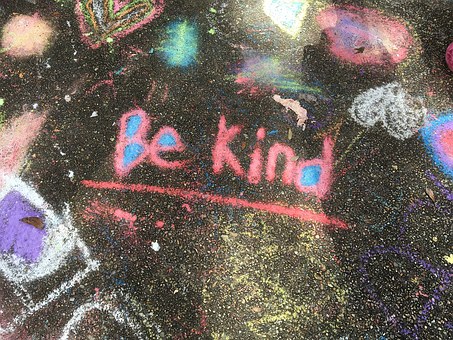Everyday, we interact with hundreds of faces, many just in passing. We often times pay no mind to the person behind the face that is the barista who took your order at Starbucks, and behind them, the four other baristas who made your drink.
We don’t even stop to think that the teen working the drive-through window at McDonald’s this morning, who forgot your third egg McMuffin, has been working that job for three years to save up money to pay for college tuition without having to take out a loan or burden their already struggling parents.
It doesn’t even cross our minds that the car that pulled out in front of us last night, then proceeded to drive a steady 45 mph down a 55 mph road could be an older man who avoids driving at night. Perhaps his vision isn’t what it used to be, and his wife needed to be picked up from the hospital, and even though he could have waited until morning, he knows how badly she wanted to go home. So he decided to go get her anyways.
We are all individuals fighting our own individual battles. It is important for us to be compassionate and considerate of the people we interact with in day-to-day life. Everyday as students we interact briefly and in depth with peers and professors alike, but often times I believe we become too absorbed in our own wants and needs to remember the importance of being compassionate to others.
So why is it important to be kind to others? As discussed earlier, you never know what someone else is going through.
Even simple acts of kindness, such as saying “thank you,” or “hi” to someone you recognize from class can make a world of difference in the quality of someone else’s day. When we remember to say “please” and “thank you,” people notice. When we are understanding of others’ mistakes and confront them in an understanding manner, rather than being hostile, it is more likely that when the tables are flipped, people will return the respect and understanding we have shown them.
For those who need motivation beyond the other, there is something to be gained personally from being kind. For an example, being kind has been scientifically proven to reduce anxiety, release endorphins and even help prevent illness. According to a study on happiness from the University of British Columbia, “social anxiety is associated with low positive affect, a factor that can significantly affect psychological well-being and adaptive functioning.” Positive affect refers to an individual’s experience of positive moods. For example, joy, happiness and alertness.
Treating others how you want to be treated may be a cliché, but they are also tried and true words to live by.
If we can give kindness to those we interact with, we are more likely to receive kindness in return, creating an environment of compassion and kindness.
Hannah Jones is a sophomore, English writing major.

























